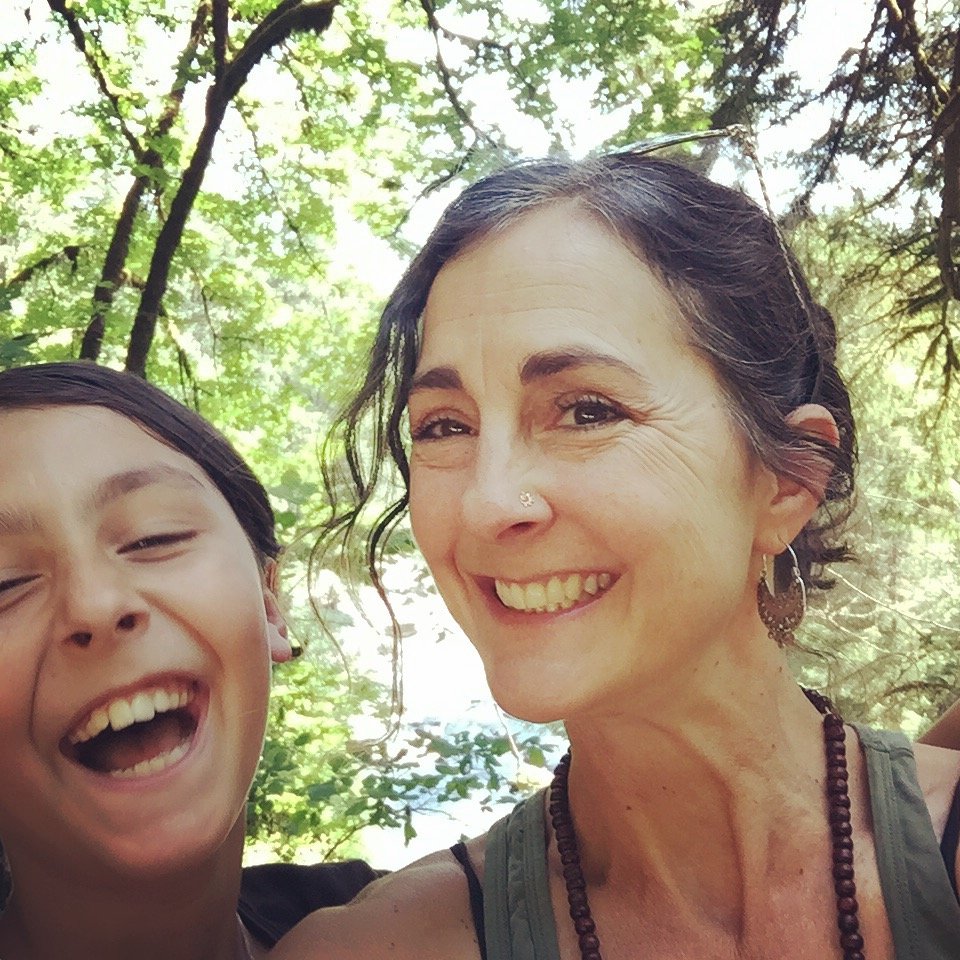Tribe. The need to gather.
Just back from a short and magical stay out in the woods of Oregon with friends in an isolated cabin. Precious time away from the buzz to allow the quiet to sink in with the constant rushing sound of the creek to clear away the mental noise. As I entered into those days of beauty and silence I became aware of how unsettled I was. The busy-ness of city life, plans for the weeks to come and the lingering presence of so much cyber-communication created enough mental noise that it was difficult initially for me to sink in.
opal creek
Strangely, I noticed what was lingering in my mind the most were thoughts revolving around a text message I read just as I was about to drive out of range… a conversation that didn’t even happen in full and didn’t happen at all in person. why was this something that my mind was holding on to?
While in the forest, I shared long talks with my good friend and walked and cooked and read. We ate together and all slept in the same small cabin. We played games with our boys. We swam and hiked and prepared food. We individually practiced and contemplated. We lived communally as one is able while on vacation and tasted the air as it sounds and feels when not filled with so many frequencies and signals.
The real presence of people living communally around me and moving through the days had a strong effect on me as did the nature surrounding us, the clear air and water. While I at first struggled, I soon felt myself coming into the clarity of my center and all the while I was accompanied and held in presence with these friends. what a blessing and a gift.
swimming hole
In best-selling author & journalist sebastian junger’s book ‘Tribe : on homecoming and belonging,” he writes about how captives of the indigenous tribal peoples in the days of the english conquest of North America would run back to the first nation people once they were ‘freed’ and returned to their supposedly more civilized community. This never happened in reverse but there are many recorded instances of this phenomena happening in that direction.
Junger continues writing about how first nation peoples spent, at that time perhaps a third of the normal American work week laboring due to shared tasks and resources and were almost always in the company of others whether that was to celebrate, to grieve, to go to war, to work or to die. The rates of depression and suicide in those cultures were nowhere near the rates we see in ‘civilized’ nations. (interestingly enough, he adds that the rates of depression and suicide go DOWN in so-called ‘civilized’ societies during times of great emergency or war because everyone bands together and becomes a necessary part of the whole in order to help with survival of the community.)
So, although we are seemingly more and more “connected,” through our devices and the internet, these connections do not actually have the same effect as real interaction and personal sharing. This we know. Interaction and personal sharing are necessary parts of our human exisistence. Belonging and being a part of a community. Face to face communication. These are essentials.
As i unwound from city life and cyber communications in the woods in the company of friends I experienced this and felt better. Coming together to sing kirtan shortly after the election last November (which felt like a time of emergency to many) we all felt better. We needed to be in that room together. We needed to sing and express and be heard. We needed each other as present, breathing, co-creating, feeling human beings… to communicate with and commune with. We needed that then and today still do.
In the wake of the election sales surged of author and political theorist hannah arendt’s classic work “The Origins of Totalitarianism” as people attempted to make sense of the ghastly rhetoric that we began to be exposed to on a near constant basis from the executive branch of government. Arendt describes totalitarianism as “organized lonliness” a growing phenomenom not only in modern society but also in the wave of refugees we see rising all over the globe. She goes on to describe loniliness as “a malise of up-rootedness and a superfluous feeling that you don’t matter.”
It is all too common to experience this illusion of separate-ness in modern living. even with so many online “friends” and “connections.” This is part of why i am committed to gathering people together to sing. Because we do matter. And because sitting with others feels good and necessary. And without people there to fill the room, it doesn’t happen.
silly times with my boy
So I say yes, use our devices to make plans and keep in touch and then, let’s gather! If you’re not already doing so, challenge yourself to get into a room full of other people to commune with somehow once a week. A room where you all do something together! Not a gym where each individual is doing their thing alone, but instead a class, a kirtan, a discussion, a town hall meeting, a spiritual service, a meet-up, a song circle, a poetry jam… use your imagination!
Let’s keep re-weaving the threads of community in real time. This way clearing isn’t just something we maybe get a taste of when we find that rare moment of camping in the woods in summer, or while on a retreat, but instead is a regular & constant practice. A renewing of our feeling of belonging and a holding space for one another as we move through these difficult times.
“Community practice is crucial at this time. It’s crucial not to be alone in front of the computer, reading media. That makes the world dark for you. Find flesh. There are still wonderful things happening.”
— Phap Dung - senior disciple of Thich Nhat Hanh



